You don’t need to claim royal blood to enjoy a visit to one of Europe’s most breathtaking palaces. Seville’s Royal Alcazar is often at the top of many people’s lists when they come to visit the city. With more than a millennium of history dating back to Moorish times, it has earned a claim to fame as the oldest royal residence in Europe still in use.
That’s right—Spain’s very own royal family calls the Alcazar home on their official visits to Seville! Its centuries of history enriched by various iconic civilizations make it truly one-of-a-kind. This guide to visiting the Alcazar in Seville will tell you everything you need to know.
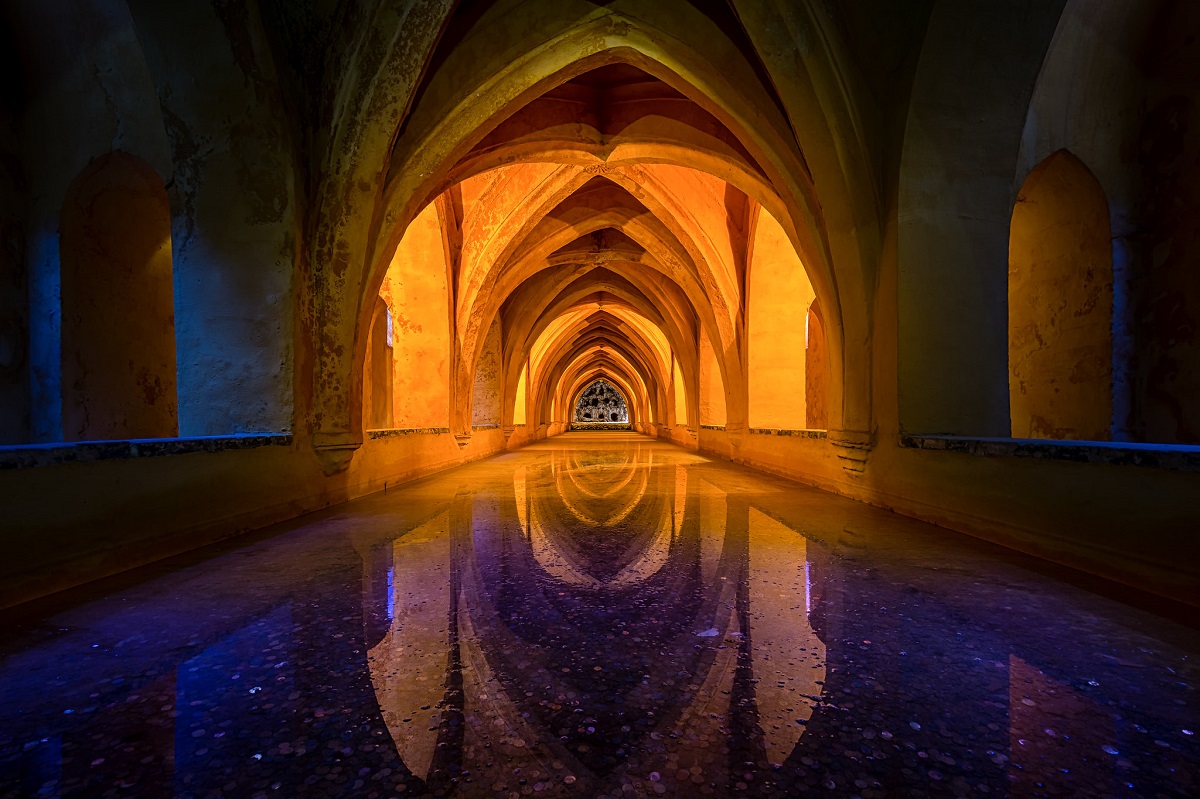
A brief history
The Spanish word alcázar comes from the Arabic al qasr, meaning “castle.” Throughout its history, the magnificent structure saw use as both a fortress and a palace. The earliest known use of the site was for a Visigoth basilica. The Moors promptly destroyed it after arriving in Seville in 712. In its place, they built a military fortress, the remains of which can still be seen in some parts of the surviving Alcázar today.
By the 12th century, the Christian Reconquest was in full swing across the Iberian peninsula. After King Fernando III recaptured Seville from the Moorish rulers in 1248, he converted the existing Alcazar structure into a Christian palace. Over the next few centuries, the ruling Christian monarchs were continuously renovating and adding onto the site, transforming it into the splendid royal residence we know today.
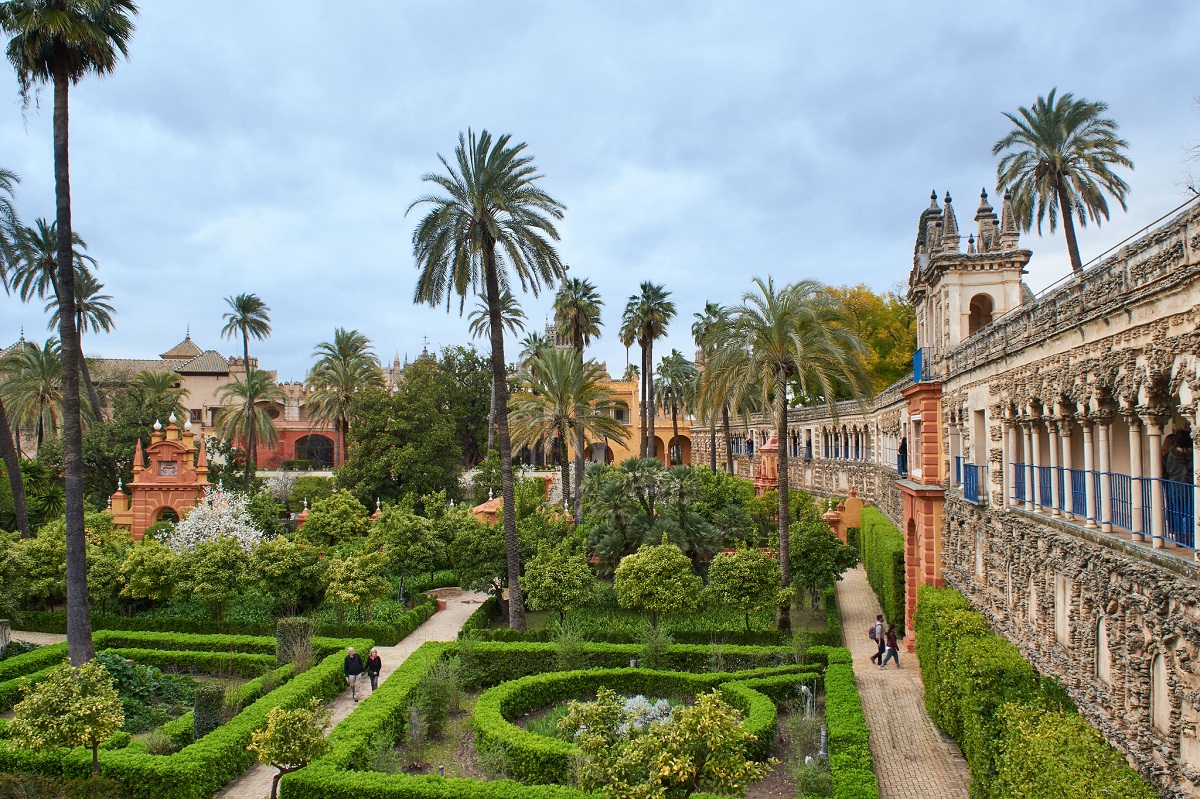
Buying tickets
In this section of our guide to visiting the Alcazar in Seville, we’ll walk you through the various options for buying tickets to the monument.
In the past few years, the Alcazar has received an unprecedented number of visitors. This is thanks in part to one of HBO’s biggest hits. The site appeared in a recent season of Game of Thrones and has attracted more visitors than ever as a result. For that reason, lines can be quite long and involve standing out in the hot sun for an hour or more.
Due to this increase in popularity, we highly recommend buying your tickets online in advance. This will help you avoid the long lines for buying day-of tickets. The website features many different price points and visit options, among them a general visit with an audio guide and a nighttime visit with dramatic performances.
If you decide to visit at the last minute and can’t buy tickets online, or if you simply have a flexible travel schedule, you can still buy tickets at the door the day of. As we mentioned, lines can get quite long, but this is a viable option if you don’t mind waiting.
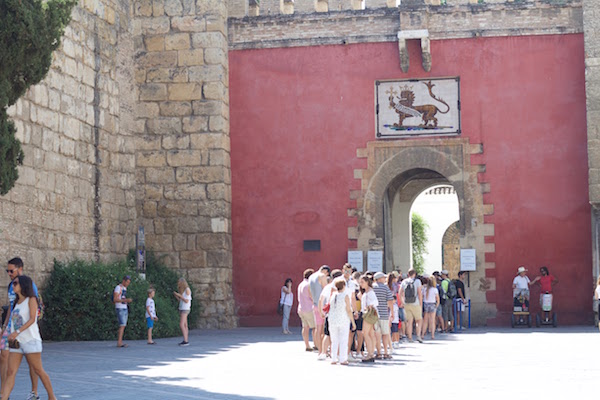
Noteworthy areas
If we’re being honest, every corner of the Alcazar is worth exploring! If you have the time, we strongly suggest taking several hours to wander around the grounds and gardens, taking in the rich history and beautiful views. In this section of our guide to visiting the Alcazar in Seville, we’ll highlight a few of the most important areas of the complex and provide you with context that will help you appreciate them all the more.
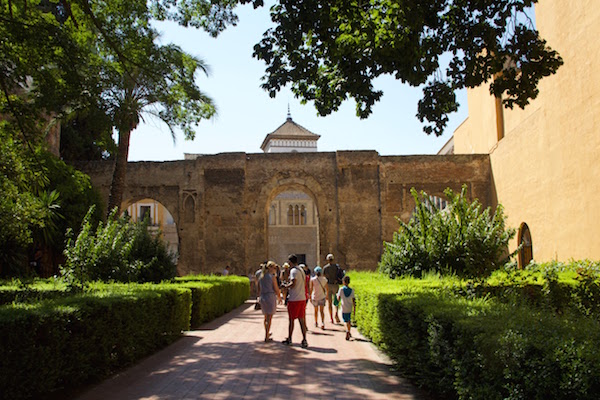
Patio del Yeso & Justice Room
You can see the oldest remaining traces of the original Moorish structure in the two areas directly to your left as you enter the Alcazar. The arches that you’ll see in the Patio del Yeso might look familiar if you’ve visited the Mezquita in nearby Cordoba. In fact, they were modeled after the arches in the famous mosque, but have been faded to white after so many centuries of sun exposure! They were built in the 10th century, making them the oldest surviving touches of the Moorish palace-fortress.
After leaving these historic rooms, head to the Patio de la Montería. From this courtyard, you’ll be able to see three unique buildings dating from different periods of history.
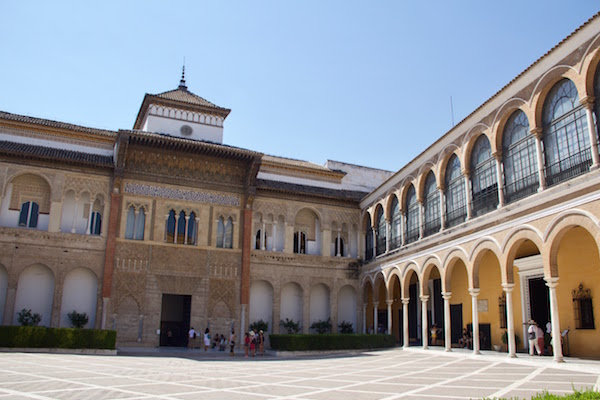
Contracting House
Established in 1503, this single room was instrumental in the exploration of the New World. Representatives from any country that wanted to visit the Americas had to pass through this very room. Here, officials approved voyages, collected colonial taxes and stored top-secret information. Some of the greatest voyages of the time were planned here. One of them was Magellan’s first circumnavigation of the world, which sailed from Seville in 1519! Today, it houses the iconic painting The Virgin of the Navigators. This work is famous for being the first European piece depicting the Americas and the native people.
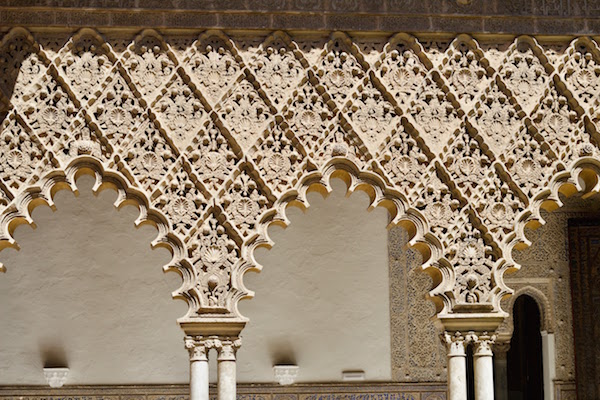
Palace of Peter I
Dating back to the 14th century, the Palace of Peter I is arguably the Alcazar’s most beautiful and recognizable building. It stands out as a stunning example of Mudejar art. This unique method consists of using Moorish styles to depict Christian elements. At the time, it was the most popular architectural style in Seville.
Continue straight back through the palace to the Patio de las Doncellas, or Maidens’ Courtyard. This patio was used as a waiting area for maidens and servants as they awaited their duties. From here, you can access Peter I’s bedroom.
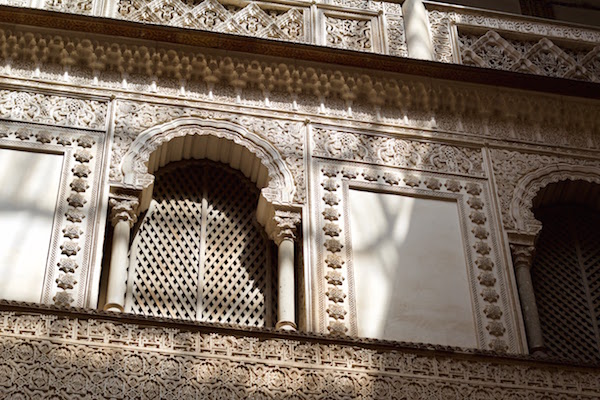
Catholic Monarchs’ rooms
At the Alcazar, you can step into a different century simply by walking into a new room! The part of the palace that Peter I built transitions surprisingly back into an area that dates from the time of the Catholic Monarchs, Ferdinand and Isabella. In fact, their only son, Juan I, was born right here in the Alcazar (in the Prince’s Room, to be exact) in 1478!
Another emblematic part of this area, the Dolls Courtyard, serves as a great example of Seville’s melting pot of historic cultures. Each of the columns are different! The columns themselves come from Italica, an ancient Roman settlement outside of Seville. The tops of each column came from Medina Azahara, a Moorish palace-city outside of Cordoba. This patio served as a children’s play area.
From there, head into the Catholic Kings’ Room. It is one of the most emblematic rooms dating from Ferdinand and Isabella’s time and features the emblems of their two kingdoms: Aragon and Castile. Look for the word “tantomota.” This was part of an old saying about how Ferdinand and Isabella were both equally valued and powerful.
Hall of Ambassadors
It’s time to head into the most important room in the palace! Seville craftsman Diego Ruiz built the Hall of Ambassadors (also known as the Throne Room) in 1389, using a Moorish style. The design of the room incorporates representations of both heaven and earth. The king himself would stand on the center stone directly beneath the dome to welcome visiting dignitaries. This significantly represented the belief that God appointed him to rule on Earth.
The balconies in this room were constructed for the wedding of Charles I and Isabel of Portugal. The couple got married here in 1526. Later, the king used the balconies to secretly spy on visiting dignitaries! Today, Game of Thrones fans might recognize this room as one of the settings used on the show.
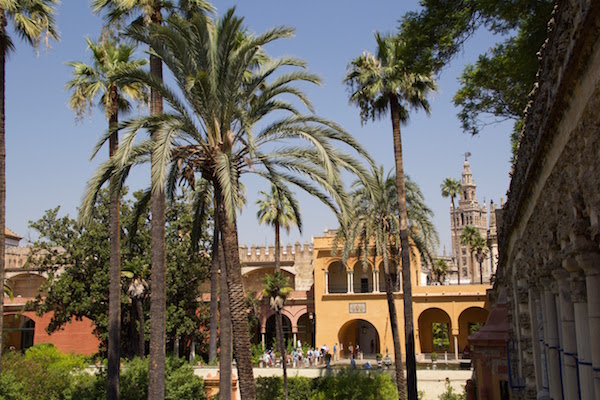
Gardens
A guide to visiting the Alcazar in Seville would be incomplete without mentioning the stunning and expansive gardens. Many of the plants you’ll see are actually from South America! Explorers brought the seeds over from the New World. The seeds were stored in the Contracting House and planted over time. This helped the gardens to bloom into a lush, exotic paradise. The gardens were another location featured on Game of Thrones. Fans may know them better as the Water Gardens of Dorne!
Want to gain insights into the palace’s history and its Moorish architecture? Enjoy VIP access to this amazing building – and see it with an expert guide – on our Alone in the Alcazar Tour!